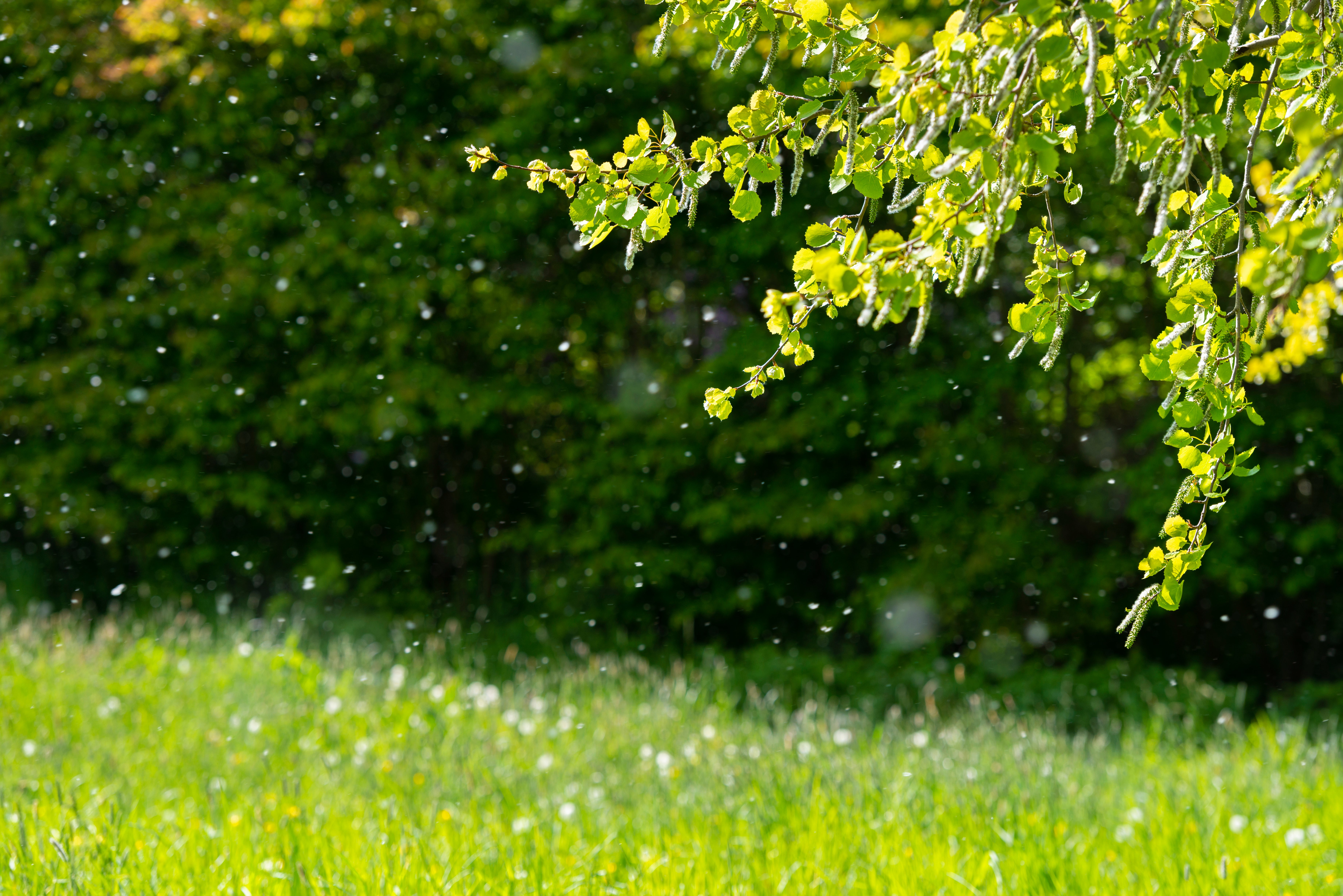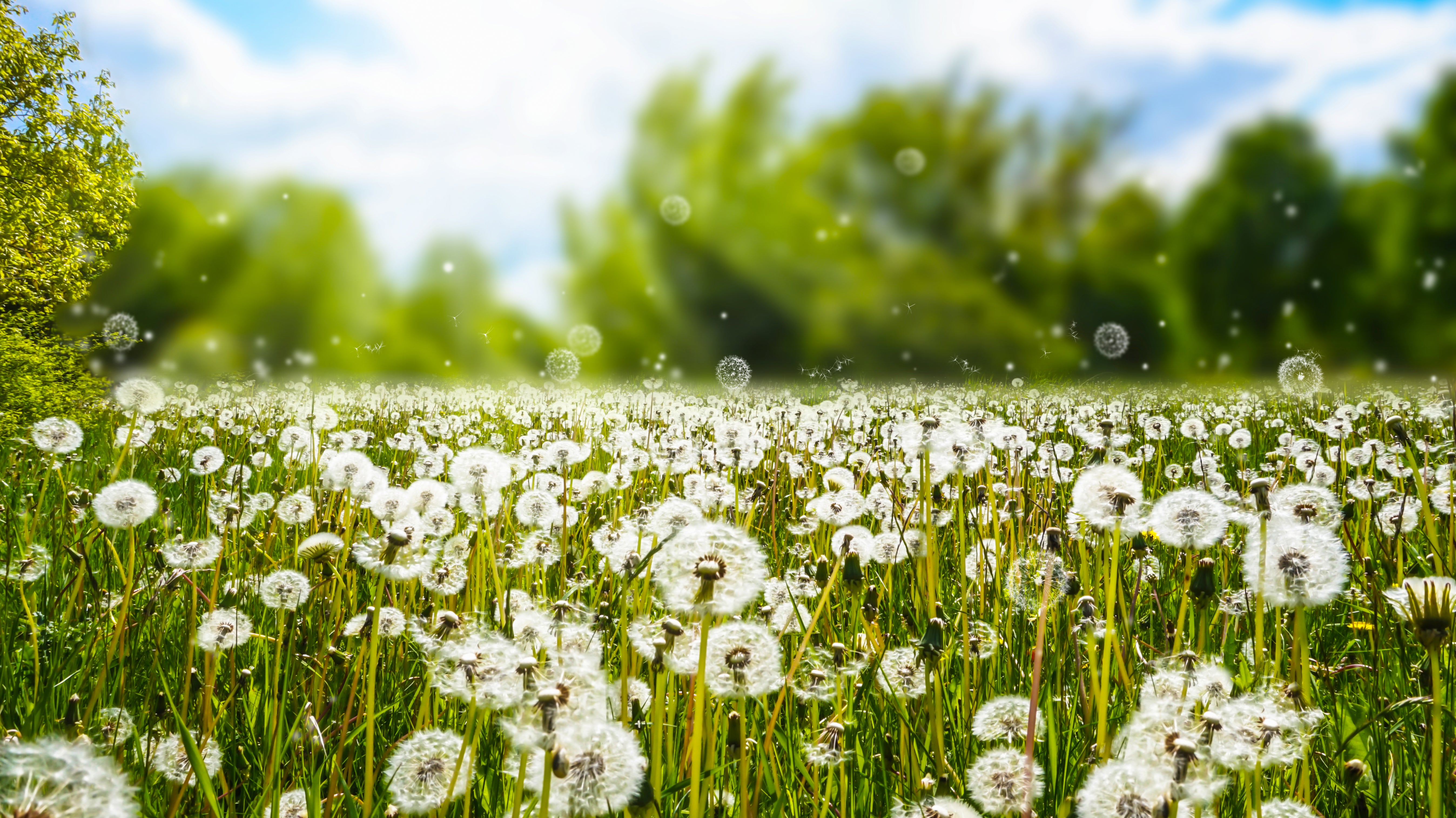Why climate change could be making your hay fever worse
No, you’re not imagining it – pollen is getting more potent, and it’s down to rising temperatures

Your support helps us to tell the story
From reproductive rights to climate change to Big Tech, The Independent is on the ground when the story is developing. Whether it's investigating the financials of Elon Musk's pro-Trump PAC or producing our latest documentary, 'The A Word', which shines a light on the American women fighting for reproductive rights, we know how important it is to parse out the facts from the messaging.
At such a critical moment in US history, we need reporters on the ground. Your donation allows us to keep sending journalists to speak to both sides of the story.
The Independent is trusted by Americans across the entire political spectrum. And unlike many other quality news outlets, we choose not to lock Americans out of our reporting and analysis with paywalls. We believe quality journalism should be available to everyone, paid for by those who can afford it.
Your support makes all the difference.Global heating could be making hay fever worse for sufferers in the UK, experts say.
Hay fever affects almost 10 million people in England, the equivalent of almost one in four adults, and the Met Office has said research shows that the number of sufferers is rising year on year.
Researchers told The Independent there was evidence that global heating was increasing the quantity or potency of different types of pollen, and that traffic pollution could also be exacerbating suffering.
Dr Beverley Adams-Groom, a pollen expert and forecaster at the University of Worcester, said researchers thought people could be suffering from hay fever more in recent years because grass seed pollen might be getting more potent with more carbon dioxide in the atmosphere.
More than nine in 10 hay fever sufferers are affected by grass pollen between May and August in the UK, according to Dr Adams-Groom.

Although pollen potency isn’t being monitored in the UK, international research – and domestic research dating back 10 years – suggests that pollen grains are becoming more potent at certain times of year, she said.
“We don’t have up-to-date information on this for the UK,” she added. “But that’s what we suspect might be happening because so many people are saying how bad their hay fever is.”
One theory is that, as climate change causes temperatures to increase, grasses are producing more allergenic pollen. Pollen grains contain proteins, which are the allergens that trigger a histamine release in the nose and eyes, making them itchy and runny, Dr Adams-Broom explained.
At the same time there is evidence that pollution, particularly from vehicle traffic, is also interfering with pollen.
Professor Fan Chung, a professor of respiratory medicine at Imperial College London, said climate change meant that levels of environmental pollution, such as ozone, would rise as higher temperatures increased the number of pollution particles in the atmosphere.
This pollution could cause inflammation in the lungs and nose that would add to the effect of the pollen allergy, he said. There was also some evidence – though not entirely proven – that pollen particles could be carried by pollution particles, he added.
“That will have implications particularly for what pollen can do when it’s inhaled into the lungs, which obviously can cause asthma,” he said.
Prof Chung said he thought it was possible that more people in the UK would develop allergies to pollen in the future.
“There might be people who have allergies but don’t suffer,” he said. “But with the increase in pollen levels that you might find with climate change, they could start to react.”
Dr Adams-Groom said that although there was no evidence to suggest that the pollen count was increasing for grass seed pollen, there was evidence that the amount of silver birch pollen was rising in parts of the UK.
Silver birch pollen flowers earlier in the year, around April, and affects about a quarter of hay fever sufferers – several million people – she said.
The pollen within silver birch tree flowers sets in June to flower the next year. Dr Adams-Groom’s research has found that hotter June temperatures have led to an increased production of pollen in silver birch flowers.
“There is a significant link [to global warming],” she said. “It’s all about which key months are being affected. For example, with the silver birch we can directly link pollen production to the increase in June temperatures.”
Dr Adams-Groom said the season for oak and grass pollen was also starting earlier, although she added that it still varied from year to year.
The Met Office said climate change might lengthen the UK pollen season and there was a risk that invasive species, such as common ragweed, might start growing in the UK. This would be bad news for hay fever sufferers because a single ragweed plant can produce a billion grains of pollen per season and its pollen causes strong allergic reactions, the Met Office added.
Dr Adams-Groom said the duration of the pollen seasons remained mixed in the UK and there was no distinct pattern coming through the research. But she said that might be because researchers have only 26 years to study, not really long enough to establish a trend.
In the US, the pollen season now starts 20 days earlier and brings 21 per cent more pollen than in 1990, according to a recent study.
Researchers discovered that the climate crisis was playing a significant part in that longer season and a partial role in the mounting pollen count.
Asked about the future, Dr Adams-Groom said she didn’t think the UK would see vast changes in the pollen trends but those outlined above would probably continue.
Join our commenting forum
Join thought-provoking conversations, follow other Independent readers and see their replies
Comments